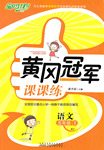题目内容
Mrs Elise was my teacher in the fourth grade. One day at lunch time, I was getting ready to eat my tuna fish (金枪鱼) sandwich and suddenly Mrs Elise asked me if she could buy my sandwich from me. She explained that I could use the money to buy a hot hunch from the cafeteria (食堂).
I was excited. I never bought my lunch at the cafeteria. It was too expensive for my family, and I always carried my lunch and took the bag back home to use it again the next day. So you could understand my happiness when I had the chance to buy a hot lunch.
When we finished lunch that day, Mrs Elise took me aside and said she wanted to explain why she had bought my sandwich. I really didn’t care why, but it gave me a few minutes of her special attention, so I was quiet as she explained. She told me that she was a Catholic(天主教徒) and Catholics didn’t eat red meat on Fridays, they ate fish on Fridays.
Oh, I couldn’t wait to get home and tell my mother that from then on I wanted a tuna fish sandwich on Fridays. After my mother understood why, she gladly made tuna fish sandwiches for me on Fridays. She even made it with brown bread because she knew Mrs Elise liked brown bread. From then on, every Friday I could get in line with other kids for a hot lunch. I didn’t care how many of the kids complained about cafeteria food. It tasted divine to me!
I realize now that Mrs Elise could have made herself tuna fish sandwiches on Fridays. But she bought mine because she saw a little girl who was excited at the simple act of having a hot lunch.
I will never forget Mrs Elise for her pity for me and generosity (慷慨) and what I should do is to follow her example.
1. From this passage we know_______.
A.Mrs Elise was the best friend of the writer
B.the writer came from a poor family
C.many or the writer’s classmates liked cafeteria food
D.the writer like to eat tuna fish sandwiches on Fridays
2. Mrs Elise bought the writer’s sandwiches because_______.
A.she was tired of cafeteria food
B.she hated getting in line with kids
C.she liked the tuna fish sand writer’s made by the writer’s mother
D.she wanted to show care to the writer
3. The underlined word“divine”means“_____”.
A.perfect B.sweet C.unpleasant D.bad
4. Which of the following can we learn from this passage?
A.It is hard to please all.
B.Better to give than to receive.
C.Love makes the world go around.
D.The more you offer, the more you get.
1.B
2.D
3.A
4.C
【解析】
试题分析:这篇短文的作者来自一个贫困的家庭,每天中午只能吃自己从家带来的三明治。她的老师为了帮助她,找借口花钱买了她的三明治,从而让她用钱去买热乎的午餐。长大后,作者明白了原因,从而决定用行动来回报老师。
1.根据I was excited. I never bought my lunch at the cafeteria. It was too expensive for my family,及下文描述,可知这个作者来自一个贫困的家庭,故选B。
2.通过阅读短文可知伊莱斯老师也能自己做这种三明治,她这样做只是为了让作者能吃上一段热乎的午餐,故选D,表示对作者的关心。
3.联系上文描述可知,这种食物对我来说是极好的。故选A,完美的。
4.这篇短文中老师的善良的行为,让她的学生也学会了这样做来回报老师。故选C,爱让世界转动。
考点:关于个人成长的一篇记述文
点评:本文中长句较多,一时很难读懂句子含义,注意多读几遍,不要强求非得理解一词一句的含义,能把握文章大意就行。然后带着问题阅读短文,一般就能顺利找出答题依据。对于不能直接找到根据的问题注意联系上下文,根据短文中心总结出正确答案。

 黄冈冠军课课练系列答案
黄冈冠军课课练系列答案Mrs Elise was my teacher in the fourth grade. One day at lunch time, I was getting ready to eat my tuna fish (金枪鱼) sandwich and suddenly Mrs Elise asked me if she could buy my sandwich from me. She explained that I could use the money to buy a hot hunch from the cafeteria (食堂).
I was excited. I never bought my lunch at the cafeteria. It was too expensive for my family, and I always carried my lunch and took the bag back home to use it again the next day. So you could understand my happiness when I had the chance to buy a hot lunch.
When we finished lunch that day, Mrs Elise took me aside and said she wanted to explain why she had bought my sandwich. I really didn’t care why, but it gave me a few minutes of her special attention, so I was quiet as she explained. She told me that she was a Catholic(天主教徒) and Catholics didn’t eat red meat on Fridays, they ate fish on Fridays.
Oh, I couldn’t wait to get home and tell my mother that from then on I wanted a tuna fish sandwich on Fridays. After my mother understood why, she gladly made tuna fish sandwiches for me on Fridays. She even made it with brown bread because she knew Mrs Elise liked brown bread. From then on, every Friday I could get in line with other kids for a hot lunch. I didn’t care how many of the kids complained about cafeteria food. It tasted divine to me!
I realize now that Mrs Elise could have made herself tuna fish sandwiches on Fridays. But she bought mine because she saw a little girl who was excited at the simple act of having a hot lunch.
I will never forget Mrs Elise for her pity for me and generosity (慷慨) and what I should do is to follow her example.
【小题1】 From this passage we know_______.
| A.Mrs Elise was the best friend of the writer |
| B.the writer came from a poor family |
| C.many or the writer’s classmates liked cafeteria food |
| D.the writer like to eat tuna fish sandwiches on Fridays |
| A.she was tired of cafeteria food |
| B.she hated getting in line with kids |
| C.she liked the tuna fish sand writer’s made by the writer’s mother |
| D.she wanted to show care to the writer |
| A.perfect | B.sweet | C.unpleasant | D.bad |
| A.It is hard to please all. |
| B.Better to give than to receive. |
| C.Love makes the world go around. |
| D.The more you offer, the more you get. |